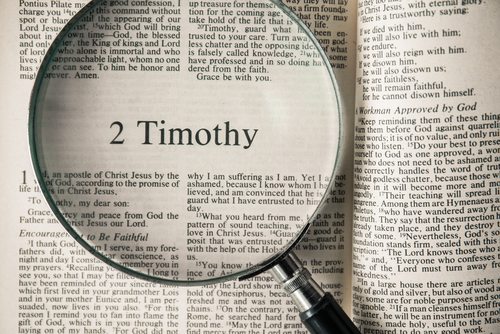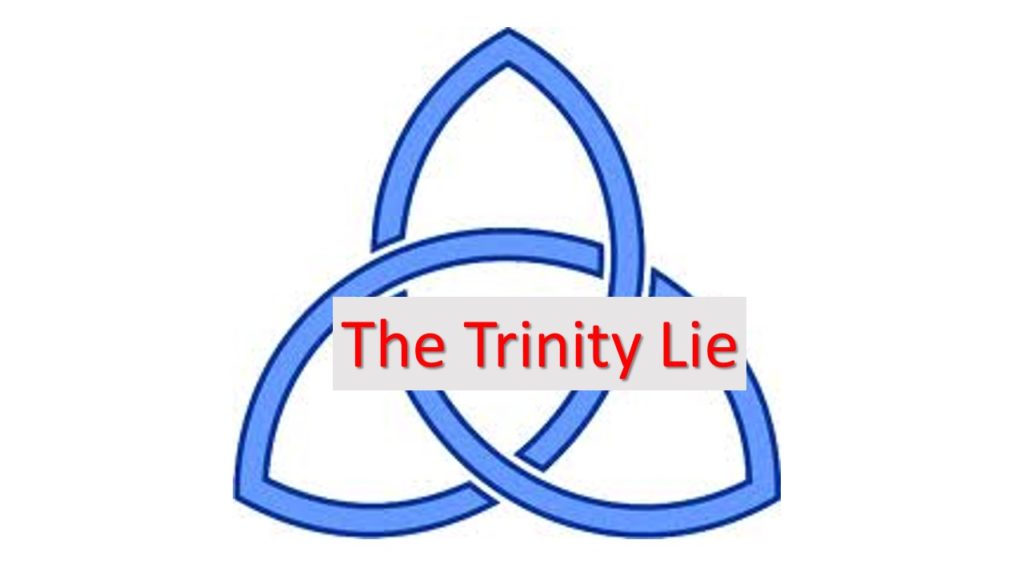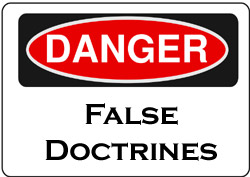
In Paul’s final canonical letter, and now facing certain execution at the hands of the Romans, we would expect Paul to at least make some mention of the doctrine of Trinity, if it is true, since it is purportedly the “primary doctrine of Christianity”.
“Paul, an apostle of Christ Jesus by the will of God, in keeping with the promise of life that is in Christ Jesus” (2 Timothy 1:1 NIV). There is no mention in this opening greeting of the holy Spirit, or a Trinity. Why not, if the holy Spirit is a person, and the Trinity is true doctrine. God, not Jesus, obviously is the one who is supreme, since Paul is “an apostle of Christ Jesus by the will of God“. There is no mention, nor is there any evidence of, any personhood of holy Spirit, or of any “equality” between God and Jesus.
“Grace, mercy and peace from God the Father and Christ Jesus our Lord” (2 Timothy 1:2 NIV). In this verse, we again do not find any reference to a Trinity, nor of the holy spirit, but we do have “God the Father and Christ Jesus” named as separate and distinct individuals. If the holy spirit was a person, or the Trinity was real, we would expect that there would be greetings from them, but there are not any. These facts provide no evidence of the Trinity doctrine.
“Guard this rich trust with the help of the holy Spirit that dwells within us” (2 Timothy 1:14 NAB). “The holy Spirit” is referenced by the definite article “the.” The holy Spirit is real. It is God’s power (Luke 1:15-17; Acts 1:8) and no name is ever given to “the holy Spirit”, both of which are evidences that the holy Spirit is not a person.
“Remember Jesus Christ, raised from the dead” (2 Timothy 2:8 NIV). Since “God . . . will never die” (Habakkuk 1:12 NIV), but Jesus “was dead” (Revelation 1:18), Jesus cannot be Almighty God. “God has resurrected this Jesus” (Acts 2:32 HCSB), which is strong evidence that God the Father is superior to Jesus, and, thus, there is no equality.
“In the presence of God and of Christ Jesus, who will judge the living and the dead” (2 Timothy 4:1 NIV). Here, we again see a clear distinction between Almighty God and Jesus Christ. This verse also reminds us that “the Father judges no one, but has committed all judgment to the Son” (John 5:22 NIV), which is powerful evidence of the Father’s superiority over the Son. Also notable by absence is any reference to the holy Spirit, or the Trinity, at 2 Timothy 4:1 regarding the matter of judging. The Trinity is never mentioned, in 2 Timothy, or anywhere else, in the Bible.
The Letter of 2 Timothy gives us very good evidence that the Trinity doctrine is not only false, but is one of the “myths” that many Christians unfortunately were foretold would “turn aside to” (2 Timothy 4:4 NAB; NIV; NJB). read more
 The book of Jude was written by Jesus’ half brother Jude some three decades after the start of Christianity. At this stage, we would expects to find some mention of the doctrine of the Trinity, if it is true. But, just like the rest of the scriptures, there is no mention of a Trinity in Jude.
The book of Jude was written by Jesus’ half brother Jude some three decades after the start of Christianity. At this stage, we would expects to find some mention of the doctrine of the Trinity, if it is true. But, just like the rest of the scriptures, there is no mention of a Trinity in Jude.
